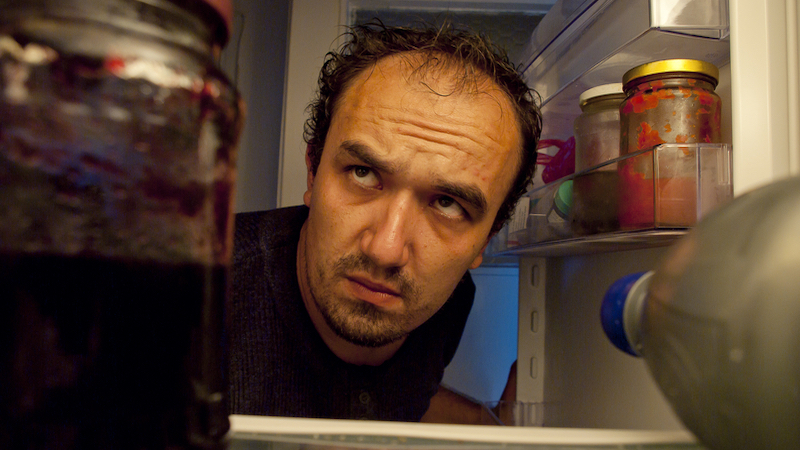Does Nighttime Eating Make You Gain Weight?
Or are other factors padding your waistline?

Registered dietitian Densie Webb looks at whether nighttime eating can make a person gain weight – or make it harder to lose weight – and at other factors that may be at play.
You may have heard the adage, “Eat breakfast like a king, lunch like a prince, and dinner like a pauper.” But the truth is most of us snack in the evening, sometimes even after a large dinner. According to the Washington D.C.-based International Food Information Council’s 2021 Food and Health Survey, about 65 percent of those surveyed said they eat at least one snack in the evening and almost 50 percent report that they consume at least one snack between 9 and 11 pm. The question often asked is, can eating at night make it harder to lose weight, or even make you gain weight?
The research on nighttime eating
A well-controlled study of 32 young women, published in the International Journal of Obesity found that eating late is associated with a reduction in calories burned and reduced glucose tolerance, among other detrimental effects on metabolism. Whether this would be true in a wider age group or in men in addition to women isn’t known.
Another study out of Japan found that among 11 young women, nighttime snacking not only reduced the burning of fat, it increased levels of total and LDL cholesterol in the blood, suggesting that nighttime eating changes fat metabolism and may increase the risk of weight gain and obesity.
Research with mice, published in Chronobiology International, found that the timing of food intake may be even more important than regular exercise for preventing obesity. Mice are nocturnal animals and when made to eat during the day, weight gain resulted.
According to Colleen Rauchut Tewksbury Ph.D., MPH, RDN, CSOWM, LDN, National Spokesperson for the Academy of Nutrition and Dietetics, there are very small, controlled studies showing that eating earlier is better for weight management than eating later, which may slow weight loss. While the answers are not all in, she says, “My take is that there may be something here. Early data suggests that timing of eating could be an important factor in weight management, but the evidence isn’t to the point that we would issue a blanket recommendation that all late eating is detrimental to health.”
While the “why’s” and “how’s” of late-night eating on weight aren’t clear, there are a few reasons why late-night snacking could be a problem.
Mindless eating
Late night snacking is often done in sync with watching streaming or television or even reading. Your focus is likely on the movie you’re watching or the book you’re reading, not the calories you’re consuming. Any reputable weight-loss program includes instruction on how to be mindful of what you’re putting in your mouth and not combine eating with any other activity, like watching television or reading. The results of a study of more than 800 men and women, who kept food diaries for one week, showed that foods eaten late at night lack the satiety of foods eaten at other times of the day, which results in an increase in food intake, a greater calorie intake for the day, and ultimately weight gain.
High fat / high sugar / high calorie snacks
The foods consumed late at night seldom include steamed broccoli or kale salads. Chips, cookies, cakes, trail mix, and pretzels are among the more common fare for late-night snacking. The calories from fat and sugar from these foods can quickly add up. The higher the fat and sugar, and sometimes sodium content, the more likely you are to crave more.
Is there a recommended diet for healthy aging?
Hormones
“Eating late can alter your circadian rhythm,” says Tewksbury. As a result, it may affect your ability to sleep. Inadequate sleep has itself been associated with weight gain. While the mechanism isn’t completely understood, some research suggests that late-night snacking can shift hormones, such as ghrelin, growth hormone, and others, and shift the body toward weight gain. Eating during the day, rather than at night, has been found to promote weight loss and improve insulin levels.
Timing
While nighttime eating may cause a shift in hormones that affect appetite and alter your body’s circadian rhythm, eating before bedtime also increases the risk of experiencing acid reflux, when stomach acid or bile flows into the food pipe and irritates the lining. Some experts have suggested its best to stop eating at around 7 p.m. or 7:30 p.m. However, Tewsksbury says, “If someone sets a goal to reduce late eating, the best cut-off time is the one they can stick with. This will be different for everyone and may take some time to achieve.”
The bottom line on nighttime eating
“What we do not fully understand right now,” says Tewksbury, “is how the body reacts to calories at different times and for different people. Recommendations for or against nighttime eating will change as science evolves and we have a better understanding.” In the meantime, she suggests that clients keep a detailed food journal to see if nighttime snacking is an issue and adjust their eating patterns by shifting snacking to earlier in the day.
Environmental Nutrition is the award-winning independent newsletter written by nutrition experts dedicated to providing readers up-to-date, accurate information about health and nutrition in clear, concise English. For more information, visit www.environmentalnutrition.com.
© 2022 Belvoir Media Group, LLC. Distributed by Tribune Content Agency, LLC.

